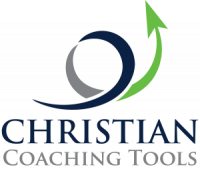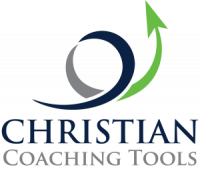
by Gary Reinecke | Dec 4, 2021 | Coach Training, Uncategorized |
How many times have you found yourself overwhelmed by your growing stack of tasks and responsibilities? Once a month? Once a week? Daily? Most of us tend to overreach, taking on more work than we have capacity for and stretching our capabilities too thin.
In coaching, it is so important to understand the time and energy this job requires and to know your own personal thresholds. Some of us can coach a handful of people and still balance the rest of our lives. Some of us need to focus on just one or two clients. Some of us have other jobs and responsibilities that need to come first. When coaches lack that ability to assess their bandwidth, they end up burning out and becoming ineffective. Today we want to ask you the following questions: Have you assessed your personal and professional bandwidth lately? Are you in place to take on more?
[Tweet “Have you assessed your personal and professional bandwidth lately? “]
As we have been looking at self-assessment in this most recent blog series, it would be impossible not to include one of the behavioral expressions: prioritize coaching. This requires a deeper look into how we make adjustments to our commitments in order to prioritize coaching relationships.
When I first began my coaching ministry, I was on staff with a missions agency AND working part-time at an inner city church. As time passed, I became less enamored with the complexities of local church ministry, and gravitated more and more to the coaching I was doing with pastors and church planters. Both were good. Eventually, however, I found myself having to make a hard choice between the two. After seven years as a co-vocational missionary/coach, I moved off church staff and moved into coaching full time.
That was in 1985. A lot has occurred in the Christian coaching world since then, but as you can see after nearly thirty years, I’ve made adjustments to prioritize coaching in my ministry.
[Tweet “…most of us tend to overreach, taking on more work than we should and stretching our capabilities too thin”]
This is still a growing edge for me. I imagine this might be a growing edge for you as well. Let’s assume you are the lead pastor of your congregation. The clearer you are in what you want to achieve, the easier it is to know who to coach, who not to coach, and what adjustments need to be made.
I look to the gifts of various individuals in Ephesian 4:11-12 as a backdrop:
11 So Christ himself gave the apostles, the prophets, the evangelists, the pastors and teachers, 12 to equip his people for works of service, so that the body of Christ may be built up.
This equipping role includes coaching as an important–if not primary–tool that leaders have at their disposal. So, when I mention coaching in ministry, I am talking about equipping leaders to be their best selves. This makes choosing the people you coach a very important decision.
Whom should I coach?
One important step in qualifying potential coaching clients is to create a proposal. I ask three simple questions to clarify what the leader is looking for from me in a coaching relationship, then I write this up in a document (coach agreement) so that we can review it together.
Three Clarifying Questions to ask Prospective clients
- What do you want to accomplish?
- How will you know when you have achieved your objective?
- What do you want the impact to be for you and your ministry?
The answers will inform you whether this is a good fit, but that is simply the first step. The next set of questions will help you determine if you want to coach them.
Ask yourself these questions about each potential coaching client:
- To what degree am I excited about the client’s chosen goal?
- What level of personal affinity exists between me and the client?
- What qualities about this client may be challenging for me to work with?
- To what degree do I feel I will be helpful to this client?
Now you have enough information to inform your decision. But there is still one more important question to ask yourself: do you have the time and energy to take this on? When you skip this step, you will most likely say “yes” to things you should say “not yet” or “no” to. This is the point where the behavioral outcome Prioritize Coaching needs to take a front seat. The heavy lifting is qualifying whom you should coach. Once that question is answered then you must make the necessary adjustments.
The principle I have learned to honor and follow is: don’t add a coaching relationship unless you remove something! Adding commitments to an already full load is a recipe for burning out and becoming ineffective. However, when you make room for new commitments, coaching relationships are:
- Life-giving
- A way to steward your gifts
- A blessing from God
[Tweet “don’t add a coaching relationship unless you remove something!”]
If you are interested in a full explanation of how our team (namely Dr. Bob Logan & Dr. Chuck Ridley) arrived at the competencies of a Christian Coach – CLICK HERE. And check out our new resource for Christian Coaching – ChristianCoachingTools.com!

Identify areas that need your focused attention as a Disciple Coach
DISCIPLE COACH QUIZ

by Gary Reinecke | Nov 20, 2021 | Coach Training, Uncategorized |
If you have been following our blog, you’ve likely taken an interest in coaching. Perhaps you’re already a professional coach, thinking about taking on more clients. Or maybe you are weighing the idea of becoming a coach. No matter where you are on your journey, it’s important to assess your readiness to coach!
Today we’re discussing how to monitor readiness to become a coach. This is a part of self-assessment that is crucial to coaching – you need to know where you are on your journey before you can know where you should go.
Monitoring readiness is the ability to determine and monitor your emotional, spiritual, and physical readiness to become a coach (and consider seeking professional assessment.) Monitoring your own readiness to serve as a coach means being willing to take an unfettered look at yourself and where you are in life. Coaching is a large responsibility and requires a lot of time and energy, a lot of specific knowledge and a deep understanding of your personal strengths and weaknesses. Sometimes other areas of your life require more immediate attention, and the time may just not be right to take on coaching. That’s okay! There will be a season where the time will be right, and you’ll be in the right place in life to take it on. Knowing your own bandwidth will make you a better coach and a happier, healthier human.
There are a number of things to consider when monitoring your readiness to coach. Here are a few exercises we recommend:
- Read through the list below and pray. Ask for God’s direction regarding your readiness in each area:
- your emotional readiness
- your relational readiness
- your spiritual readiness
- your time management
- your energy readiness
- your physical health readiness
- your season of life readiness
- your coaching skills readiness
- your mental readiness
- Get a coach competencies assessment. This is the perfect time to discover a new coaching tool: the 360 degree online coach assessment. This is a consistent and dependable research-based assessment to provide an accurate picture of where you are as a coach. It is based on nine competencies and their behavioral expressions, created by Dr. Bob Logan, Dr. Chuck Ridley, and myself.
- After your self-assessment and professional assessment, work with a coach mentor to help guide you on your journey of ongoing growth and development as a coach.
If you are interested in a full explanation of how our team (namely Dr. Bob Logan & Dr. Chuck Ridley) arrived at the competencies of a Christian Coach – CLICK HERE. And check out our new resource for Christian Coaching – ChristianCoachingTools.com!

Identify areas that need your focused attention as a Disciple Coach
DISCIPLE COACH QUIZ
Photo by Andrea Piacquadio from Pexels

by Gary Reinecke | Nov 13, 2021 | Coach Training, Personal Development |
In last week’s blog, we took a broad look at self-assessment, one of the core competencies of a Christian coach. This week, we begin to dive deeper into what self-assessment actually means, how it is expressed through our behavior and how we can grow in awareness of ourselves. Truly understanding our own motivations and our own strengths and weaknesses will ultimately help us to better meet the needs of the people we coach.
Self-assessment is developed through several behavioral expressions. In the upcoming weeks, we will explore each of these expressions, starting with Interpersonal Awareness. Interpersonal awareness means becoming aware of and evaluating the strengths and weaknesses you bring to your coaching relationships.
I recently reflected on one of my own weaknesses when it comes to coaching: I tend to interject my own experiences into my coaching practices. As a coach, part of our job is to stay indifferent and detached. This isn’t to say we don’t care, but it’s important not to overreach and push our own opinions or agendas into the lives and situations of our clients.
As a recent example of this, I was working with a client who was navigating the best way to mobilize the house churches in his network. During the Covid pandemic, his church broke down into smaller house churches. It was a large congregation, splitting into thirty house churches, which eventually grew to fifty. That’s a lot to manage! We talked about the model for a house church and the best way to train a leader. I definitely have a lot of opinions in this area, and it was difficult for me to stay indifferent as he was choosing a route I might not have taken myself. I came to realize that the path he was choosing was actually the better option for that particular congregation.
It’s important to have an understanding of ourselves as we coach others. Because I recognize my tendency to assert my own opinions, I can intentionally hold back those opinions when it’s not appropriate to share them. A lot of this comes down to our particular behavioral styles; we don’t want to superimpose our behavior onto a client. If you aren’t sure what your behavioral style is, I’d recommend looking into DiSC.
In addition to deepening our self-awareness, we also need some prior understanding of our clients. The more we know about them, the more we can adapt to their needs. A good coach is aware of how their strengths and weaknesses interact with another’s.
Here are a few questions to ask yourself before your next session with a client:
- Do I tend to be dominant or be more passive in relationships? What about my client?
- Do I tend to control a conversation or go with the flow? What about my client?
- Is my processing slow or fast? What about my client?
- Am I task-focused or driven by the relationship? What about my client?
- Do I think in terms of the big picture or do I focus on the details? What about my client?
If you are interested in a full explanation of how our team (namely Dr. Bob Logan & Dr. Chuck Ridley) arrived at the competencies of a Christian Coach – CLICK HERE. And check out our new resource for Christian Coaching – ChristianCoachingTools.com!

Identify areas that need your focused attention as a Disciple Coach
Image by Christina Morillo on Pexels

by Gary Reinecke | Nov 8, 2021 | Coach Training, Uncategorized |
Self-Assessing is the ability to understand our own strengths and weaknesses. It helps us adapt to new people and unfamiliar circumstances, to know when to take on new opportunities and to see when we are pushing ourselves towards unhealthy places. In today’s vernacular, the concept is best captured by the term Emotional Intelligence (EQ). Self-assessment begins by asking the question, “How self-aware are you?” or “How is my emotional intelligence?”
Problems that arise with low EQ:
- You will miss subtle ques people send
- You will take on more than you should
- You will lose the ability to focus
- You will become reactive
- You will frustrate people
- You will resent your work
- You will begin to disengage from life-giving relationships
In 2010, my coaching ministry was on a growth trajectory. In my personal life, however, my family was going through a deep, dark tunnel that took both of my children through serious health challenges. I really did not navigate that season well on a personal level. I was anxious about my kids’ health and did not know how to resolve my inability to “fix them” and allow God to be my source of strength.
We survived that season – but my faith was stretched to new limits. Ministry-wise, I showed up. It was a wonderfully fruitful season with new opportunities, but if I were observing my emotional state from the outside, it would have looked like a train wreck. My mind constantly pondered the future scenarios with my kids’ struggles at the center. Thankfully, the Lord helped me, my wife, and our children survive and thrive in the years to come.
If I could have done a do-over that year, I would have desired to be more like Mary than Martha (John 15). I wish I would have spent more of my energy on “being with Jesus” instead of “doing the work for Jesus.” Through this struggle, I learned the important lessons of maintaining margins and creating the bandwidth to do those things the Lord put before me. It meant focusing more intently on the Lord’s work and accepting what I could not control.
Here are three gauges that leaders must consider when they take a coach approach to assessing their own bandwidth:
- Emotional – Do I have the energy to give to this new opportunity?
- Physical – Am I in a good place with my exercise, sleep and diet?
- Spiritual – How would I describe the current condition of my soul?
My sense is most of us are running too fast. We are striving too hard. We are pushing the margins of our emotional, physical, and spiritual health. Take time today to assess your bandwidth. Find a friend to talk about how you can maintain margins in your life. Do the hard work of assessing your strengths and weaknesses as a leader who is taking a coach-approach to ministry.
In the following weeks I will take a deep-dive into the behavioral outcomes that make-up the competency of self-assessing. If you are interested in a full explanation of how our team (namely Dr. Bob Logan & Dr. Chuck Ridley) arrived at the competencies of a Christian Coach – CLICK HERE. In case you missed it, last week we introduced a new resource for Christian Coaching – ChristianCoachingTools.com!

Identify areas that need your focused attention as a Disciple Coach
DISCIPLE COACH QUIZ
Photo by Julien L from Unsplash

by Gary Reinecke | Nov 2, 2021 | Coach Training, Uncategorized |
Today is the day! We cannot be more excited to introduce you to an exciting new resource: Christian Coaching Tools!

We want to give you the opportunity to connect with the resources and training that have brought coaching competence and success to over 10,000 coaches in more than 100 countries—all in one place!
Introducing ChristianCoachingTools.com – whether you’re new to coaching or you have years of experience as a seasoned coach, we have something of value to share with you. Head on over to find the absolute best tools for Christian Coaching!
My vision for Christian coaching began in the home where I grew up. My parents nurtured my faith by listening intently to my questions and by asking me questions in return. My coaching skills were further honed through three distinct church experiences: a growing church, a new church plant, and a church in need of renewal.
Since 1988 I’ve been coaching and training leaders in coaching full-time! My focus in coaching has been to help leaders take a coach-approach to disciple making, leadership development, and church planting. From that experience I have learned so many important lessons of what it means to be a Christian coach; now, I am excited to partner with Bob Logan to raise the bar for Christian coaches both locally and globally.
Resources
Check out our FREE downloadable documents we believe every coach needs. If you are just beginning, these resources will be helpful to you. Here is just a sample of some of the templates you can download: Coach Agreement, Coaching Log, Action Planner, Action Planner Evaluation, and a Coaching Journal.
You can also subscribe to a brand new blog to get regular coaching tips from top Christian coaches and many of the latest coaching resources.
Assessment (Coming soon!)
Assessment is a powerful tool for targeted growth. We will host the only research-based 360° Christian Coaching Assessment that accurately identifies your coaching strengths and areas for development. Upon completion of the assessment, your report will direct you to updated resources that specifically address your needs so you can maximize your time and efforts to raise your effectiveness as a coach.
Here’s the thing: we all have a desire to grow as Christian coaches. You might have pursued certification or completed a coaching training course, yet still want something more. Do you want to grow in your coaching strengths? Do you want an objective way to evaluate your coaching effectiveness? Do you want a tool that includes the core competencies of a Christian coach? If so, I encourage you to learn more about this one-of-a-kind assessment!
Training
Our training is for every level of coaching in a variety of contexts. We are now offering five unique coach training paths:
- Independent Self-Study: A great way to kickstart your coaching journey and learn the fundamentals of coaching.
- Personalized Coach Mentoring: One-on-one mentoring to accelerate your growth as a coach.
- Equip People to Coach: A training kit with everything you need to train discipleship coaches.
- Coaching Excellence Track: The next step for experienced coaches who want to raise their effectiveness.
- Reproducible Coach Training: A training customized for the network leader to reproduce competent coaches across your organization.
We have considered the many various pathways a leader might want to pursue wherever he or she is on their journey. One of the most important commitments I made in my coach development was to pursue the services of a coach mentor. In fact, I hired two different mentors to have the diversity of learning from a female and a male perspective. This was a turning point for me!
In an article I wrote entitled Discover the 5 Best Ways to Grow as a Coach – CLICK HERE, I identified five levels of training. When you take the leap from “being coached,” reading about coaching, being trained as a coach to engaging a coach mentor in your development – you progress from amateur to pro! This is what happens when you move into the Coaching Excellence Track (see above).
More Resources on the Horizon!
Following closely in the wake of the new website is a brand new book! If you have been coaching for a while and desire to raise your effectiveness, this is a great resource for you. Christian Coaching Excellence takes coaches beyond the basics of coaching, offers a map for developing coaching excellence, and provides paths for targeted growth in coaching competencies and behavioral expressions. Take your coaching to the next level with Christian Coaching Excellence! Look for this book to be released in the coming weeks.
I am excited about this resource for two reasons: first, if you are a coach, this gives you a self-directed process to grow your coaching effectiveness; second, if you are a coach mentor, this puts a resource in your hands to offer additional value to the coaches you are developing.
We prayerfully ask the Lord to empower leaders through coaching to advance the work of the Kingdom!
Photo by cottonbro from Pexels

by Gary Reinecke | Oct 21, 2021 | Coach Training, Uncategorized |
This week, I continue to explain the differences between International Coach Federation and Christian Coaching. In this post, I will explore the differences in personal assessment and focus of coaching. Bob Logan is one of the best thinkers in the church planting world and a fantastic coach. We wrote the Coaching 101 Handbook together and our new book, which will be released on November 1st! Enjoy this post!
Observation #1: Ethical Guidelines
There are few differences between the Ethical Guidelines of the International Coaching Federation and Christian coaching. However, those differences are critical. If you missed last week’s post comparing Ethical Guidelines you can read it – CLICK HERE.
Observation #2: Personal Assessment
Christian Coaches constantly assess how they are helping their clients, make changes when necessary and adapt new approaches to help clients accelerate their development.
The Christian coach that believes that personal assessment is important will advance in their development. Did you catch that? Coaches who practice Self-Assessing are always developing! But that is not limited to the technical aspects of coaching. Christian coaches have the added dimension of their spiritual development that is intertwined with their values and ultimately their ethics.
The Bottom Line
In coaching we use the term Bottom-Lining. This is used when the coach senses the opportunity and necessity to help the client capture the moment in an impactful observation. And to say it in such a way that it carries a “punch.” Let me bottom-line the point we want to make under this observation.
Christian coaches who integrate their spiritual formation in their personal development will meet and exceed the ethical guidelines of secular coaches. Why is that? Because the ongoing work of the Holy Spirit reveals that which is hidden. In response, the self-aware coach will take notice of what He is bringing to her/his attention. Based on this personal assessment, the coach makes adjustments and changes their behavior.
Assess and Adapt
When I took my first Online Coach Assessment in March 2006 my overall score was in the Medium range (59.7) and the lowest score was in Abiding in Christ (52.2). That new awareness showed me that if I gave more concerted effort in this competency area, especially in the Micro-Skill of “Intercessory Prayer,” that I could improve my overall effectiveness. But first, I needed to come to grips with the realization that I was not paying attention to one of the meters on my coaching dashboard! What happened? Well, I would suggest it was a reality check that needed to register in my spirit to bring about the needed change. Which it did. From that point on I made a concerted effort to pray for each and every client, during each and every coach appointment, so that each and every client knew that I prayed for them.
Three years later when I took a second assessment my overall score jumped +4.1 points (63.8) and Abiding in Christ jumped 3.9 points (56.1). I shifted by effectiveness from a Medium performing coach to a High performing coach. I progressed in my development.
Observation #3: Focus
Christian Coaches focus on Kingdom impact and build-on the ICF understanding of the client’s goals in the Coach Agreement
Perhaps no question summarizes the focus of the Christian coach in setting the foundation for the coach agreement than the question we (Gary & Bob) have asked hundreds of leaders over our combined 65+ years of formal coaching experience. This one question distinguishes the Christian Coach from the secular coach. It may be worded differently given the client and the context but it has the same impact.
The question goes like this: “If you knew that you could not fail, what would you attempt for the Kingdom of God?”
Where the focus differs
I remember asking this question coaching a church planter not too long ago. The question caused him to stop, listen and reflect. This question does not make the list of best practices under the ICF Core Competencies. The reason: because we are intentionally and unapologetically bringing God into the conversation.
Simple questions can lead to profound insights. The church planter I asked that question to responded with his vision:
…to plant five missional communities with liturgical worship at the heart of these worshipping communities. The vision was planted in a marginalized community. And the people that participated in the mission served incarnationally. Ultimately, people would be missionally engaged (making disciples on purpose) with the goal of community transformation.
Wow! That is the kind of stuff that ushers in the Kingdom of God.
Bottom line. Christian Coaches focus on the impact clients can have on the Kingdom of God!
Resources
- 360 Coaching Assessment- Every coach should occasionally step back and assess their coaching skills. The 360-Degree Online Coach Assessment—named for its ability to provide feedback from the range of perspectives—is a research-based assessment tool built around nine core coaching competencies. It’s an effective way to get quick, accurate feedback on a person’s current level of coaching skills.
- Coaching Resources- We partner with Resource Zone to offer you excellent coaching guides, storyboards, profile assessments, and skills builders on a variety of topics. These resources are invaluable tools to help those you are coaching move forward and achieve their goals.
[wpcdt-countdown id=”12841″]
Just one more week to the launch of a NEW COACHING WEBSITE and Christian Coaching Excellence!








